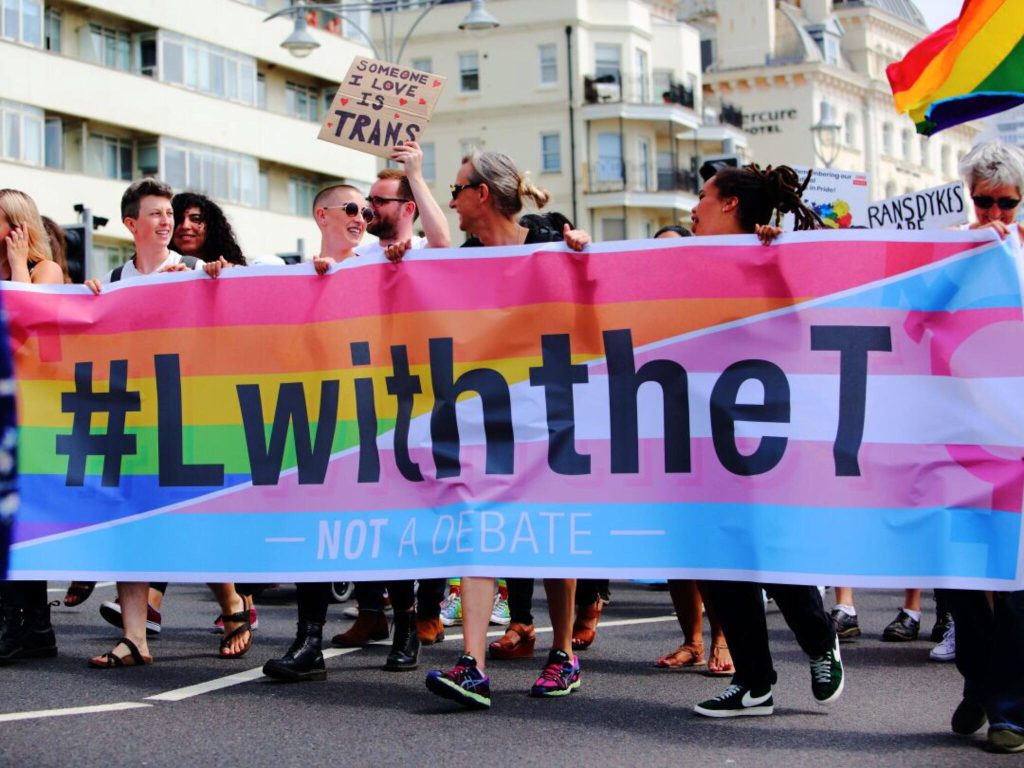
“If you can’t love yourself, how in the hell are you gonna love somebody else?”, “We’re all born naked and the rest is drag” … we’re all familiar with RuPaul’s famous one-liners, which are often expressions of self-love; defending our right to be authentically and unapologetically ourselves.
RuPaul’s status within the LGBTQ+ community cannot be understated. Bringing drag into mainstream culture is no small feat, but being the most famous drag queen in the world also comes at a price. So when RuPaul recently sparked a debate about who can or can’t be a drag queen, it made me wonder how valuable RuPaul’s opinions still are when he’s clearly forgotten his Herstory.
In a recent interview with The Guardian, Ru shocked us all when he said he wouldn’t accept a transgender contestant on his show if they had already transitioned. According to Ru: ‘Drag loses its sense of danger once its not men doing it… you can identify as a woman and say you’re transitioning, but it changes once you start changing your body… it changes the whole concept of what we’re doing’. It seems to me that Ru, the queen who constantly claims how ‘punk rock’ it is to rebel against male-dominated culture through drag, is upholding that exact culture by saying which women should (or shouldn’t) do drag, based upon their physical appearance.
Reducing women down to body parts is not just thinly veiled misogyny, but completely trans-exclusionary. Looking back at past contestants of Drag Race – such as Detox, Chad Michaels and Sharon Needles – we can see time and time again that Ru does accept queens who have changed their bodies to look more ‘feminine’ with lip fillers, hip padding and cheek fillers, but there is one crucial difference: none of these queens are transgendered.
The comments of a bigoted queen are just a small part of a much bigger, and far more widespread, issue: as trans visibility and activism grow there has been a disturbing increase of transphobic abuse. We are in the middle of what can only be described as an epidemic of violence towards trans people. The tip of the iceberg being the recent disruption to London Pride: where a group called ‘Get The L Out’ delayed the beginning of the parade and handed out transphobic literature. This claimed that the inclusion of trans people in the LGBTQ+ community was an attempt at lesbian erasure, and that “[t]he trans movement with the complicity of ‘queer’ LGBT politics is coercing lesbians to have sex with men”.
The reality that groups like this exist within LGBTQ+ spaces is terrifying enough, yet as I said, it’s just the tip of the iceberg. Trans people are constantly hounded by trolls and TERF’s like ‘GetTheLOut’; with trans activists such as Munroe Bergdorf, Lily Madigan, and Shon Faye being bombarded with vile verbal abuse and threats of physical violence which include (but are not limited to) death and rape threats online. On the streets, the situation is far worse. A recent report from Stonewall revealed that in the last 12 months alone:
- 41% of transgender people have experienced a hate crime
- 35% of transgender youth have experienced physical assault
- 72% of transgender youth have self-harmed
- Almost half of all transgender people in Britain have attempted suicide
- Over half have been diagnosed with depression or severe anxiety
These statistics are heart-wrenching, to say the least, and RuPaul’s comments might seem almost insignificant in comparison.
However, now seems like a good time to remind people like RuPaul, Get The L Out, and everyone else for that matter, of a bar in Manhattan called The Stonewall Inn. In 1969, trans women of colour stood at the front lines of the gay liberation movement. Marsha P Johnson and Sylvia Rivera, trans activists and drag queens, threw the first bricks and bottles at police who were raiding the Inn, and sparked the riot that is largely considered to be the tipping point of LGBTQ+ visibility and activism. The first ever pride was held on the 1 year anniversary of the riots, once again with trans women at the forefront.
So really, it’s not the case that trans people are ‘suddenly’ appearing on our televisions, twitter feeds, Facebook, beauty campaigns, in our political parties and pride parades – they have been there all along, as our quiet champions of change and liberation.
